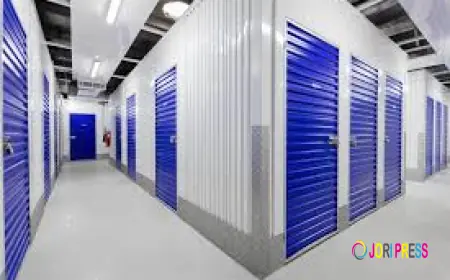Embracing Solar Energy: A Complete Guide to Solar Installation Services in Kerala
As the world transitions to renewable energy, Kerala is steadily making its mark in the solar revolution. With its high literacy rate, environmental awareness, and growing power needs, the state is increasingly turning to the sun to meet its electricity demands. Solar installation services in Kerala are no longer just an urban trend—they’re becoming a practical and sustainable solution for households, businesses, and institutions alike.

In this article, we’ll explore everything you need to know about solar installation in Kerala: from how it works, to benefits, costs, and what to expect during the installation process.
Looking for a solar installation services in kerala visit here.
Understanding Solar Energy
Solar energy is the conversion of sunlight into electricity using photovoltaic (PV) panels. These panels are usually mounted on rooftops or open land, absorbing sunlight and converting it into usable electricity. The system can be customized based on your energy needs, available space, and budget.
There are three main types of solar systems commonly used:
- Grid-tied systems – connected to the local electricity grid
- Off-grid systems – completely independent with battery backup
- Hybrid systems – a mix of both, offering greater flexibility
Each system type serves a different purpose and is suitable for different scenarios, which is why professional consultation is crucial before installation.
Why Kerala is Ideal for Solar Energy
Kerala may be known for its rains, but it still enjoys ample sunlight across most months of the year. Here’s why solar makes sense for the state:
1. Plenty of Sunlight
Despite a long monsoon season, Kerala receives over 250 sunny days per year, with an average solar radiation of about 4.5 to 6 kWh/m²/day.
2. Rising Electricity Costs
As energy prices continue to climb, investing in a solar power system offers a way to reduce long-term expenses.
3. Power Outages in Rural Areas
Many regions still experience frequent power cuts. Solar energy, especially off-grid or hybrid systems, ensures uninterrupted power supply.
4. Government Incentives
The state and central governments offer subsidies and benefits to encourage solar adoption, especially for domestic users.
Benefits of Going Solar in Kerala
Choosing solar isn’t just an environmental choice—it’s also a smart financial decision. Here are some key advantages:
1. Lower Electricity Bills
Once your solar system is up and running, you can significantly cut down on your monthly electricity bills. In some cases, surplus power can be sent back to the grid, earning you credits.
2. Eco-Friendly Energy
Solar energy is clean and doesn’t emit harmful gases. It's one of the most environmentally friendly sources of power available today.
3. Low Maintenance
Solar systems require minimal maintenance. Periodic cleaning and an annual inspection are usually sufficient to ensure optimal performance.
4. Increased Property Value
Homes and commercial spaces with solar systems installed are seen as more valuable due to their energy efficiency and lower operational costs.
The Solar Installation Process: Step by Step
Installing a solar power system is a well-structured process. Here’s a breakdown of what it typically involves:
Step 1: Initial Consultation
A technical expert visits your site to understand your energy usage, roof space, shading issues, and overall feasibility.
Step 2: System Design & Proposal
Based on the site visit, a customized solar solution is proposed. This includes technical specifications, system layout, cost estimation, and expected savings.
Step 3: Approvals & Documentation
If you’re applying for government subsidies or net metering, necessary documents must be submitted to the electricity board and relevant agencies.
Step 4: Installation
Once approvals are in place, the installation team mounts the panels, connects the inverter, and sets up wiring and controls. This process may take 2–7 days.
Step 5: Testing & Commissioning
After installation, the system is tested to ensure everything works as expected. If it’s a grid-tied system, the electricity board will inspect and activate net metering.
Step 6: Monitoring & Maintenance
Modern systems come with mobile apps or web dashboards to track energy production. Occasional maintenance ensures high performance over 20–25 years.
Factors to Consider Before Installing Solar
Before you move forward with a solar installation, here are a few important things to evaluate:
1. Roof Condition
Ensure your roof is strong enough to hold the weight of solar panels and has enough open space for installation.
2. Shading
Obstructions like trees or nearby buildings can reduce system efficiency. Panels must be placed in areas with maximum sun exposure.
3. Budget and Financing
While solar is a long-term investment, upfront costs can be high. Many financing options, including loans and EMI plans, are available.
4. System Size
Your system should be designed based on your daily electricity consumption. Oversizing or undersizing can affect savings and performance.
Government Support and Subsidies
The central and state governments provide several incentives to promote solar energy adoption. These may include:
- Capital subsidies for residential rooftop systems
- Net metering policy allowing export of excess energy
- GST benefits on solar components
- Easy loan options through nationalized banks
To avail of these, your installer must be an approved vendor, and your system must meet technical standards. It's essential to stay informed about the latest policies, as they can change annually.
Maintenance Tips for Solar Panels
Although solar systems are low maintenance, a few simple practices can go a long way in maintaining performance:
- Clean panels every few months to remove dust, bird droppings, and debris
- Inspect wiring and connections annually
- Monitor energy production regularly using your system’s app or meter
- Schedule a professional check-up once a year to ensure everything is working smoothly
The Future of Solar in Kerala
Kerala’s solar journey is still evolving. With the state promoting green energy policies and more people embracing sustainability, the future looks promising. Innovations like solar rooftops on public buildings, floating solar plants on dams, and integration with electric vehicle infrastructure are already in progress.
For individual homeowners and business owners, this is the right time to invest in solar—both for cost savings and for contributing to a cleaner planet.
IF You want solar installation company in kerala visit here.
Final Thoughts
Solar installation services in Kerala are more than just a trend—they’re a step toward a sustainable, energy-secure future. With abundant sunlight, rising power needs, and strong government support, switching to solar is both a responsible and rewarding decision.
Whether you're a homeowner looking to reduce monthly bills, a business owner wanting to cut operational costs, or simply someone passionate about the environment, going solar in Kerala makes perfect sense.
What's Your Reaction?
 Like
0
Like
0
 Dislike
0
Dislike
0
 Love
0
Love
0
 Funny
0
Funny
0
 Angry
0
Angry
0
 Sad
0
Sad
0
 Wow
0
Wow
0










































